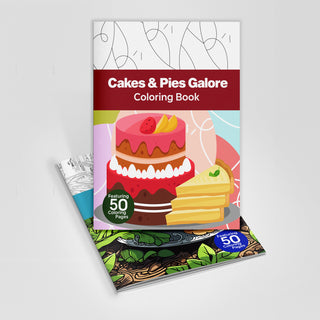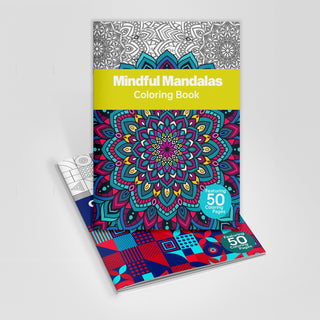Writing about anxious, stressful, or traumatic events can improve our mental health.
It's a tool that can help you let go of these feelings in a very healthy way. Writing down your thoughts and feelings is a great way of relieving negative energy and focusing on the things in life that are no longer serving you.
My journal became my safe space where I could express my feelings and thoughts without feeling judged. It is my healthy habit where I manage my mental health and improve my anxiety.
One of the best parts of journaling is that you can do it whenever you want; you can do it at home when it's convenient for you, and it's free!
In this article, I'm giving you a list of 120 mental health journaling prompts so you can start organizing your thoughts, express yourself, and process and deal with your emotions.
But before we get there, I will give you some tips on how to start a mental health journal.
Steps On How To Start A Mental Health Journal
As we said before, writing your thoughts and feelings in a journal can be a powerful activity to improve your mental health. This technique does not require much time; you only need a notebook and a pencil, and even your smartphone can be your journal.
- Try to be consistent. Commit to writing every day until it becomes a habit.
- Dedicate at least 15 minutes daily to a place that would make you feel comfortable and safe.
- There are no rules. You can write how much you want and use your creativity by drawing or using colors.
- Your journal is your private place, but if you want to share it, you are free to do it.
- Use journaling prompts. Using prompts can be a good tool to open yourself a little bit more about your feelings and thoughts. They can serve you as a guide.
- Write openly. Just be true to yourself. Don't worry about your grammar or spelling. Let go of intrusive thoughts, and open your heart and mind.
- Try to understand your triggers without being judgemental. Face your fears.
- Learn from what you have written. Try to identify toxic patterns that you would like to change.
- Refocus your viewpoints.
- Remind yourself of what you are capable of, of what you can and cannot control.
RELATED: 35 Amazing Songs Of Self-Compassion To Help With Self-Care
If you are having a hard time, I want you to know that everything will be fine.
Try one of the following journaling prompts to improve your mental health.
1. Nourish Your Mental Health With Journal Prompts
Struggling with mental health is an everyday battle we must handle.
Journaling prompts help you to have an emotional release and heal.
They provide a safe and supportive space to express your feelings and thoughts.
Whenever I'm feeling anxious, stressed, or overwhelmed, I sit down and start journaling.
Writing on paper about this feels like I'm emptying my thoughts, giving me a sense of calm and returning me to the present moment.
Use your journal to write your emotions, feelings, and physical sensations related to this experience.
I've made a list of journaling prompts that will help you reflect on patterns, externalize your triggers, and make them feel more manageable.
Ready to nourish your mental health? Use the following journal prompts:
1. "List down 5 things that are currently stressing you out."
2. "Do you love your body and mind? Why or why not?"
3. "What are 3 things you'd like to improve about your life right now?"
4. "What are you proud of yourself for?"
5. "Write a letter to someone who has negatively impacted you (but don't send it out)"
6. "Describe one of your most important or passionate goals."
7. "Physically, how do you feel right now?"
8. "Write a letter of forgiveness to yourself"
9. "What is something about yourself that you'd like to change?"
10. "What are your boundaries? Have you been reinforcing them? If yes, how so?"
11. "What are 3 of your long term and short term goals?"
12. "Write a list of 10 things you want to say to yourself during difficult times (and refer or add to this list when the going gets tough!)"
13. "What have your fears and anxieties taught you about yourself?"
14. "What is something nice you did for someone else, and how did it make you feel?"
15. "How did you feel today? What emotions did you feel?"
16. "What do you fear the most, and why?"
17. "What are 3 things you can do right now to alleviate some stress?"
18. "Write about the people that make you happy in your life"
19. "Write about 1 of your happiest memories."
20. "Describe your perfect, most stress-free day."

21. "What about yourself do you hope to change?"
22. "Describe a time when you were stressed or scared, but things turned out alright in the end."
23. "When was the last time you did something for yourself, and what did you do?"
24. "What are 3 things that make you angry and why?"
25. "Describe a place that makes you feel happy or peaceful. Visualize this safe space when you're stressed or anxious."
26. "List 5 reasons why you love yourself (and refer or add to this list when the going gets tough)."
27. "List 5 things you're grateful for today"
28. "Mentally, how do you feel right now?"
29. "What are 5 things you'd do if you weren't afraid?"
30. "Make a list of comforting things that will help you on bad days."
2. Gratitude Journal Prompts For Better Mental Health
Having a grateful mindset can change your life.
Gratitude is an act of well-being. Using gratitude journal prompts will inspire you to transform the way you perceive things in a good way.
In a world filled with constant distractions and challenges, finding moments of gratitude can bring immense joy, contentment, and perspective to our lives.
It breaks the toxic cycle of negative thinking, helping you decrease anxiety and depression. Each day, practicing gratitude will become a new habit.
These prompts will invite us to pause, reflect, and express appreciation for the blessings, experiences, and relationships that enrich our lives.
31. "Write about an electronic device that you feel grateful to have."
32. "What is your favorite part about your town or city?"
33. "Write about something beautiful that moved you to tears."
34. "List 5 things in your bedroom that you are grateful for."
35. "What was the most enjoyable part of your childhood?"
36. "Write about the most influential people in your life."
37. "List 5 ways that having a mobile phone makes your life easier."
38. "What privilege do you enjoy that others might not?"
39. "What do you like about growing up?"
40. "Write about a time when you challenged your comfort zone."

41. "What is the funniest video you've watched recently?"
42. "What excites you about the future?"
43. "Whose company do you like the most?"
44. "Write about a song that you can't help but sing along to."
45. "Look around and list 5 things that help you in your day-to-day life."
46. "When did something wonderful happen unexpectedly?"
47. "Express gratitude for 5 tools that help you save time."
48. "Appreciate the vehicles that let you travel long distances."
49. "Who is the most reliable person in your life?"
50. "Appreciate a stranger that was helping someone in need."
51. "What aspect of your health do you feel grateful for?"
52. "Write about a recent improvement in your lifestyle."
53. "Write about something that makes you feel lucky."
54. "What is one thing about the Internet that you admire?"
55. "What is your favorite thing to do in your free time?"
56. "Express gratitude for the facility of ordering food at your doorstep and the people who deliver it."
57. "Express gratitude for having as much food as you need."
58. "What is something that you can do today that people 30 years ago couldn't?"
59. "Think about the people you don't know who help make your life easier."
60. "Which is your favorite weather, and why?"

61. "Express gratitude for 5 things that you use daily."
62. "Write about an achievement that you are most proud of."
3. Mental Health Journal Writing Prompts For Mindfulness
Practicing mindfulness for your mental health can be beneficial in many ways.
If your mind is focused on the present, it is easier to appreciate what you can control and what is in your hands to make things work.
Mindfulness is the act of being aware of the present moment while acknowledging feelings, thoughts, emotions, and physical sensations without judgment, just accepting them.
Every time I write in my journal my feelings and thoughts for the day, it helps me better understand emotions, reducing my anxiety.
It has also helped me recognize and dismantle mental habits I had practiced all my life. Helping me to redirect my path to a calmer and more fulfilling life.
RELATED: 361 Uplifting Quotes To Start The New Week On A Positive Note
Mental health is something serious; we need to take care of our minds every day, such as we take care of the things we love.
Use the list of mental health journaling prompts to practice mindfulness I've created for you.
63. "Think of a recent situation that you found difficult. What were your thoughts and feelings about that situation?"
64. "Who do you admire most? Why? Write a list."
65. "What has been your experience of seeking help for mental health issues? Did you find it easy or were there obstacles in your way?"
66. "What makes you feel worse when you are feeling down?"
67. "How do you feel about your past? Has anything from your past contributed to your mental health issues?"
68. "How has your relationship with yourself changed since you started journaling?"
69. "What makes you feel good? Write down a list of activities, foods, people, or places that make you feel happy and relaxed."
70. "What are some of your favourite memories? Write about one specific memory that always brings a smile to your face. Why do you treasure that memory so much?"
71. "What are your thoughts and feelings about what is happening in your life right now?"
72. "Are there any areas of your life in which you’d like to see more growth? Make a list and then jot down how you can improve those areas."
73. "What are the biggest challenges you’re facing right now? How are you going to overcome them?"
74. "How have your thoughts or beliefs about yourself changed over time?"
75. "What do you think might be contributing to your current mental health condition? What can you do about these things? Are some of them out of your control? Can you make a plan to deal with the things you can?"
76. "Are there any areas of your life that you would like to change? What areas of you work or personal life do you need to improve?"
77. "What are your strengths and weaknesses when it comes to managing your mental health?"
78. "How is your mental health affecting your daily life? Is it having a significant impact?"
79. "What helps you feel better when you are feeling down?"

80. "What do you think causes your mental health issues? Is it something you can deal with now?"
81. "What’s been on your mind lately? Is there anything you can’t stop worrying about? Write down anything that’s been on your mind in the past few days or weeks."
82. "What do you love most about yourself? Write down three qualities that make you feel good about yourself."
83. "Is there anything you would like to try to help with your mental health? Why do you think this will help?"
84. "What are your goals for the upcoming week? Write down one or two goals for the week ahead, both personal and professional. How will you achieve these goals?"
85. "What coping mechanisms work best for you? Write a list of all of the things that help."
86. "What do you think you need to let go of?"
87. "What have you learned about yourself in the past year? How has it helped you?"
88. "If you could have one wish, what would it be and why?"
89. "What stigma or discrimination have you experienced related to your mental health? How did you deal with this?"
90. "Has your mood changed since you started journaling?"
91. "What are your triggers? Identify the situations, people, or things that tend to cause you stress or anxiety. Why do you think these things provoke a reaction in you?"
92. "What are some of your biggest accomplishments from the past year?"
4. Positive Journal Prompts For Mental Well-Being
Positive thinking is not hard to achieve. Just try to appreciate everything that is around you.
And no, I'm not talking about materialistic stuff.
I'm talking about all the positive experiences and the simple pleasures of life, such as walking, hearing the birds, admiring a landscape, eating your favorite food, meeting new people, and visiting different places.
They can be big or small, ranging from significant life events to everyday moments of joy.
Positive thinking can relieve stress, and anxious thoughts, lower blood pressure, live in the present moment and improve overall well-being.
Start each morning establishing a positive thought and a word of affirmation such as: "This is going to be a good day, I'm strong and capable of anything, and I will not let anybody change my mood."
I'm a strong believer that the mind is powerful enough to change the way we live life. We are here just briefly, so try to enjoy it while it lasts.
RELATED: 225 Encouraging Darkness Light Quotes To Help You Find Your Way
Are you ready to start cultivating the art of positive thinking? Then, you are at the right place.
Use the journaling prompts below for your mental well-being.
93. "Write at least ten things that you can control. "
94. "Make a list of your coping mechanisms "
95. "Describe one of your most passionate goals"
96. "Describe your greatest yearnings and wishes. "
97. "What gives you more energy? Think of ways you can add them to your life. "
98. "Write a short story about a fictional character that goes through your circumstances and how they manage to overcome them. "
99. "Imagine what your life will be like when every challenge you’re facing at the moment is gone. "

100. "Write at least five things that you can’t control. "
101. "Write about your current state of mind. For example, do you feel weird, angry, lazy, or anxious? "
102. "Write a one stanza poem about your mood. While writing, reflect on what happened that made you feel that way. "
103. "Write a short poem to your future self. The poem should describe where you hope you’ll be in some years’ time. "
104. "Write a short note about how you feel about your body."
105. "Who has given you a reason to smile in the past few days? Write a bit about them and how they make you smile."
106. "Write at least five actions that you can take this week that will make you feel joyful."
107. "Write a short message to yourself about your bad days. "
108. "Write a letter to someone who has hurt you. Include things you never told them, but you wished you could."
109. "Write something short about your strengths and how they can help you use them to your advantage. "
110. "Write a letter expressing why you forgive yourself for a past mistake. "
111. "Describe what love means to you and how best you can show it."
112. "Write a poem about the warmest memories of your childhood. Title it “Nostalgia.” "
113. "Describe your emotions with as many words as you can. "
114. "Write between five and ten things that make you feel anxious."
115. "Describe who you were five to ten years ago. "
116. "Think about the past five years of your life. What progress have you made? What can you change or do differently to be where you wish to be?"
117. "Write a letter to someone who hurt you letting them know you forgive them. "
118. "Search deep down, what difference has your number 5 made in your life. Be positive."
119. "What satisfies you the most about waking up in the morning? Write about it."
120. "What’s your biggest failure, and how did you handle it?"

Frequently Asked Questions
Does Journaling Help With Mental Health?
Journaling can reduce the impact of stressful or anxious events. Studies have linked writing on paper as a way of decreasing mental distress.
How Do I Start My Mental Health Journaling?
Try These Tips To Help You Get Started With Journaling:
- Try to be consistent. Commit to writing every day until it becomes a habit.
- Dedicate at least 15 minutes daily in a place that would make you feel comfortable and safe.
- There are no rules. You can write how much you want and use your creativity by drawing or using colors.
- Your journal is your private place, but if you want to share it, you are free to do it.
How Do I Start Mental Health Journaling With Prompts?
Choose a quiet and comfortable space where you can write freely. Begin with prompts that resonate with you, and gradually explore different aspects of your thoughts and emotions. Write honestly and without judgment.
What Topics Do Mental Health Journaling Prompts Cover?
Mental health journaling prompts cover a wide range of topics, including:
- Identifying triggers and stressors
- Practicing gratitude and positive affirmations
- Exploring self-care routines
- Tracking mood changes and patterns
- Challenging negative thought patterns
- Reflecting on personal growth and progress
Continue Reading 👉: 50+ Meditation Journaling Prompts To Nourish Your Soul

















